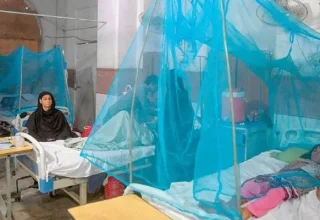
In a significant medical breakthrough, researchers at the National Research Center on Camels (NRCC) in Bikaner, Rajasthan, have discovered that tears and antibodies derived from camels may serve as an effective antidote to venom from as many as 26 different snake species.
The research, which is being hailed as a game-changer for regions plagued by snakebite-related deaths and disabilities, holds particular promise for rural India — a country that accounts for the highest number of snakebite fatalities globally, with an estimated 58,000 deaths and over 140,000 cases of permanent disability reported annually.
According to researchers, the antibodies extracted from camel tears and blood were found to neutralise the lethal effects of venom, particularly those that cause haemorrhaging and clotting disorders.
The antidote is not only reportedly more effective but also poses fewer allergic risks compared to the conventional treatment, which is based on horse immunoglobulin (IgG).
“Camels have a unique and highly adaptive immune system, evolved to survive in extreme desert environments. Their antibodies are smaller, more stable, and penetrate tissues more effectively than conventional antibodies,” said a senior scientist at NRCC.
The research team conducted trials using venom from highly poisonous snakes to test the efficacy of camel-derived antibodies. Results indicated a strong protective response, with the antibodies offering quicker and safer neutralisation of venom.
The findings are expected to pave the way for the development of a more affordable and widely available treatment, particularly in remote areas where access to anti-venom is limited and delays in treatment often prove fatal.
Beyond the medical implications, the study is also boosting the livelihood of camel herders in the Thar Desert region. Farmers and herders in Bikaner, Jaisalmer and Jodhpur — where the NRCC operates — are being encouraged to allow controlled extraction of blood and tears from their camels.
In exchange, the NRCC and partnering pharmaceutical firms, including the Serum Institute of India, are offering monthly payments ranging from Rs 5,000 to Rs 10,000 per camel.
“This initiative is not only saving lives but also reviving the economic role of camels in our society,” said a spokesperson for the NRCC. “Camels are no longer just a mode of desert transport. They are now becoming partners in public health.”
The demand for camel-derived antibodies has attracted the attention of both public and private pharmaceutical companies, with several expressing interest in scaling up the production of the antidote for wider distribution.
Experts believe that if adopted nationwide, camel-based anti-venom could significantly reduce the human and economic toll of snakebites in India, and potentially across other snakebite-prone regions globally.
While further clinical testing and regulatory approvals are still required before camel-based anti-venom becomes a mainstream treatment, researchers remain optimistic.
“This could mark the beginning of a new era in venom therapy,” one researcher noted. “And it’s coming from the most unexpected of places — the tear of a camel.”














































